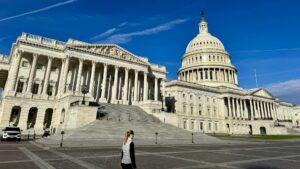Understanding the Social Security Fairness Act: What It Means for Public Employees
At Extreme Investor Network, we believe that our readers deserve not only timely information but also in-depth insights into the financial events shaping their futures. Recently, the US Senate has made headlines as it inches closer to a pivotal vote on the Social Security Fairness Act—a bill that could significantly increase Social Security benefits for approximately 3 million individuals, primarily public sector employees.
What is the Social Security Fairness Act?
The Social Security Fairness Act aims to repeal rules that diminish Social Security benefits for individuals receiving pension income from public sector jobs. Specifically, this legislation targets two provisions: the Windfall Elimination Provision (WEP) and the Government Pension Offset (GPO).
The Windfall Elimination Provision creates a reduction in Social Security benefits for individuals who have worked in jobs where they did not pay Social Security taxes. Conversely, the Government Pension Offset impacts spouses, widows, and widowers drawing their own government pensions, typically significantly lowering their Social Security benefits.
The Cost-Benefit Dilemma
Despite the bipartisan support the bill has garnered, concerns loom regarding its financial implications. The Congressional Budget Office estimates that repealing these provisions could cost $196 billion over the next decade. Some Republican senators, including Thom Tillis of North Carolina, have voiced opposition, emphasizing the strain this could place on an already fragile Social Security system, which is projected to face insolvency by 2033 if changes aren’t made.
As we consider these developments, it’s vital to understand how this could impact the average American. While the bill promises immediate benefits for public sector employees, it raises long-term sustainability concerns regarding the Social Security trust fund—a concern echoed by financial experts at Extreme Investor Network.
The Human Impact: Stories from the Ground
While the numbers paint a broad picture, the real impact of the WEP and GPO rules can be felt deeply by individuals. Take, for example, the story shared by Senator Susan Collins of a 72-year-old woman forced back into the workforce after her husband’s death, only to find her widow benefits slashed by the GPO. She was penalized for having served her community through public service, illustrating the human cost of these provisions.
Senator Bill Cassidy introduced another poignant case of a retired schoolteacher who sought clarity after facing reduced benefits. Her story underscores how these provisions can lead to unintended hardships on those who have devoted their careers to public service.
What’s Next?
If the Senate successfully votes to pass the Social Security Fairness Act, it could accelerate the insolvency timeline of the Social Security trust fund by as much as six months, according to assessments made by the Committee for a Responsible Federal Budget. Critics argue that while changes to the WEP and GPO may provide short-term relief for some, they threaten the long-term viability of the benefits system relied upon by the majority.
Why This Matters to You
As we navigate these legislative waters, it’s crucial for investors and individuals planning their financial futures to remain informed. At Extreme Investor Network, we encourage our readers to stay proactive about personal finance and retirement planning.
Consider diversifying your income streams or increasing contributions to retirement accounts while monitoring developments in social security policies. The outcome of this bill could influence not just current benefits but the intricate landscape of public finance and personal investment strategies.
Stay tuned as we continue to analyze the implications of the Social Security Fairness Act, offering insights that empower you to make informed financial decisions. Remember, your financial future deserves the utmost attention, and we’re here to guide you every step of the way!

